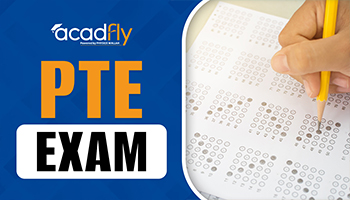

Writing a Statement of Purpose (SOP) for Ivy League schools is a critical step in the application process. Ivy League institutions, known for their rigorous academic standards and prestigious reputation, expect a high level of excellence in every aspect of an applicant’s submission. A compelling SOP can significantly enhance your chances of gaining admission. This article will provide detailed statement of purpose guidelines for Ivy League schools, covering the essential elements, structure, and tips to make your SOP stand out.
Understanding the Importance of a Statement of Purpose
A statement of purpose is your opportunity to communicate directly with the admissions committee. It allows you to:
-
Showcase your academic achievements and professional experiences.
-
Explain your motivations for pursuing a particular program.
-
Highlight your long-term goals and how the program aligns with them.
-
Demonstrate your writing skills and ability to articulate your thoughts clearly.
Given the competitive nature of Ivy League admissions, a well-crafted SOP is crucial in distinguishing yourself from other applicants.
Key Elements of a Statement of Purpose
1. Introduction
The introduction should capture the reader’s attention and provide a brief overview of your academic background and professional aspirations. It sets the tone for the rest of the SOP.
2. Academic Background
Detail your academic journey, highlighting key achievements, research experiences, and relevant coursework. Explain how these experiences have prepared you for the program you are applying to.
3. Professional Experience
If applicable, discuss your professional experiences, internships, or any relevant projects. Emphasize how these experiences have contributed to your skills and knowledge in the field.
4. Motivation for Applying
Clearly articulate your reasons for choosing the specific program and Ivy League school. Explain what attracts you to the program and how it aligns with your career goals.
5. Future Goals
Outline your long-term career objectives and how the program will help you achieve them. Demonstrate a clear vision of your professional path and the impact you hope to make in your field.
6. Conclusion
Summarize the key points made in your SOP and reiterate your enthusiasm for the program. End with a strong closing statement that leaves a lasting impression.
SOP Guidelines for Ivy League Schools
1. Research the Program
Before writing your SOP, thoroughly research the program and the Ivy League school. Understand the faculty’s expertise, research facilities, and specific strengths of the program. This knowledge will help you tailor your SOP to reflect how your interests align with the program’s offerings.
2. Be Specific and Personal
Use specific examples to illustrate your achievements and experiences. Avoid vague statements and focus on what makes you unique as an applicant. Personal anecdotes can make your SOP more engaging and relatable.
3. Maintain a Professional Tone
While it is important to convey your enthusiasm and passion, maintain a professional and respectful tone throughout your SOP. Avoid overly casual language and ensure that your writing reflects your maturity and seriousness about the application process.
4. Highlight Your Fit with the Program
Explain why you are a good fit for the program and how your background, interests, and goals align with what the program offers. Mention specific faculty members you are interested in working with and how their research aligns with your interests.
5. Proofread and Edit
A well-written SOP should be free of spelling, grammar, and punctuation errors. Carefully proofread your SOP and consider asking a mentor, teacher, or friend to review it for feedback. Multiple revisions may be necessary to ensure clarity and coherence.
6. Adhere to Guidelines
Ivy League schools may have specific guidelines regarding the length and format of the SOP. Adhere to these guidelines strictly. Typically, an SOP is 1-2 pages long, with a clear structure and logical flow of ideas.
Key Elements of a Statement of Purpose
|
Element |
Description |
|
Introduction |
Captures attention, provides an overview of academic background and professional aspirations. |
|
Academic Background |
Highlights key academic achievements, research experiences, and relevant coursework. |
|
Professional Experience |
Discusses professional experiences, internships, or relevant projects and their contributions to your skills and knowledge. |
|
Motivation for Applying |
Clearly articulates reasons for choosing the specific program and Ivy League school. |
|
Future Goals |
Outlines long-term career objectives and how the program will help achieve them. |
|
Conclusion |
Summarizes key points and reiterates enthusiasm for the program with a strong closing statement. |
Sample Statement of Purpose
Here is a sample statement of purpose for an Ivy League school:
Introduction
I am writing to express my interest in the Master of Business Administration (MBA) program at Harvard Business School. With a background in finance and a passion for strategic management, I am eager to further my education and develop the skills necessary to lead innovative projects in the global business landscape. Harvard’s renowned faculty, cutting-edge curriculum, and emphasis on leadership development make it the ideal place for me to achieve my career goals.
Academic Background
My academic journey began with a Bachelor’s degree in Finance from the University of Michigan, where I graduated with honors. During my undergraduate studies, I excelled in courses such as Corporate Finance, Investment Analysis, and International Economics. My research project on sustainable investment strategies won the departmental award for excellence. These academic experiences have provided me with a solid foundation in financial principles and analytical skills.
Professional Experience
After graduation, I joined XYZ Financial Services as a junior analyst. Over the past three years, I have been promoted to senior analyst and project manager. My role involved conducting market research, developing financial models, and providing strategic recommendations to clients. One of my most rewarding experiences was leading a team in the successful merger of two mid-sized companies, resulting in significant cost savings and improved market positioning. These professional experiences have honed my leadership, analytical, and problem-solving skills.
Motivation for Applying
Harvard Business School’s MBA program stands out to me due to its focus on experiential learning and global perspective. The case method approach resonates with my learning style, as it emphasizes practical application of theoretical concepts. Additionally, I am particularly drawn to the Leadership Initiative and the opportunity to work with esteemed faculty members such as Professor Michael Porter. His work on competitive strategy aligns with my interest in strategic management and innovation.
Future Goals
My long-term goal is to become a strategic consultant for global corporations, helping them navigate complex business environments and drive sustainable growth. I believe that the comprehensive education and networking opportunities at Harvard will equip me with the knowledge and connections needed to achieve this goal. I am committed to making a positive impact in the business world by promoting ethical practices and innovative solutions.
Conclusion
In conclusion, I am excited about the prospect of joining Harvard Business School’s MBA program and contributing to its vibrant academic community. I am confident that my academic background, professional experiences, and career aspirations align well with the program’s objectives. Thank you for considering my application. I look forward to the opportunity to discuss how I can contribute to and benefit from Harvard’s MBA program.
Sincerely,
[Your Name]
Conclusion
Writing a compelling statement of purpose for Ivy League schools requires careful planning, thorough research, and attention to detail. By following the guidelines outlined in this article, you can craft an SOP that effectively communicates your qualifications, motivations, and aspirations to the admissions committee.
Remember, a strong SOP is specific, personal, and professional. Take the time to highlight your unique strengths, align your goals with the program’s offerings, and proofread your writing to ensure clarity and coherence. With a well-crafted SOP, you can enhance your chances of gaining admission to an Ivy League school and taking the next step towards achieving your academic and career goals.
FAQs
1. What should be included in a statement of purpose for Ivy League schools?
A statement of purpose for Ivy League schools should include an introduction, academic background, professional experience, motivation for applying, future goals, and a conclusion. It should highlight your achievements, explain your reasons for choosing the program, and demonstrate how the program aligns with your career aspirations.
2. How long should a statement of purpose be for Ivy League applications?
A statement of purpose for Ivy League applications is typically 1-2 pages long. It should be concise and focused, adhering to any specific guidelines provided by the university.
3. How can I make my statement of purpose stand out?
Answer: To make your statement of purpose stand out, be specific and personal. Use concrete examples to illustrate your achievements and experiences, tailor your SOP to the program and faculty, maintain a professional tone, and ensure it is free of spelling and grammar errors.
4. What is the importance of a statement of purpose in the Ivy League application process?
The statement of purpose is a critical component of the Ivy League application process as it allows you to communicate directly with the admissions committee. It provides insight into your academic and professional background, motivations, and goals, helping the committee assess your fit for the program.
5. Should I address my statement of purpose to a specific person?
If possible, address your statement of purpose to a specific person, such as the head of the admissions committee or a faculty member. If this is not possible, a general salutation such as "Dear Admissions Committee" is acceptable.
Frequently Asked Questions









